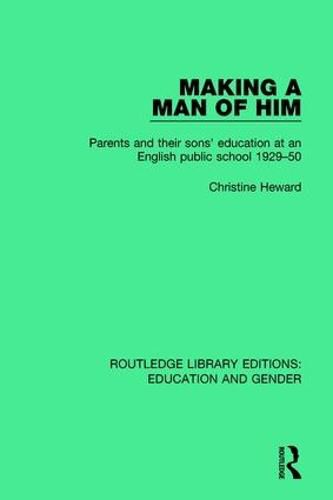Readings Newsletter
Become a Readings Member to make your shopping experience even easier.
Sign in or sign up for free!
You’re not far away from qualifying for FREE standard shipping within Australia
You’ve qualified for FREE standard shipping within Australia
The cart is loading…






Originally published in 1988, this book analyses the effect of public boarding school on those boys who grew to manhood under its influence. With access to over 2000 letters written by parents to the Head Master and governors of Ellesmere College in the period 1929-50, it raises issues about the construction of masculinity in the mid-twentieth century. The author demonstrates from these candid letters the concerns of a small group of parents bringing up their sons: their aspirations, plans, fears and problems. She shows how parents’ plans changed, sometimes very dramatically, due to the Second World War, and demonstrates the differences between social groups as diverse as clergy, widows and farmers in bringing up their sons. The author also presents fascinating and elusive evidence about the sons themselves and the effects of their schooling on their models of masculinity, sexuality and attitudes to women. This book places the particular concerns of a relatively small group within the much wider contexts of education, social and gender structure.
$9.00 standard shipping within Australia
FREE standard shipping within Australia for orders over $100.00
Express & International shipping calculated at checkout
Originally published in 1988, this book analyses the effect of public boarding school on those boys who grew to manhood under its influence. With access to over 2000 letters written by parents to the Head Master and governors of Ellesmere College in the period 1929-50, it raises issues about the construction of masculinity in the mid-twentieth century. The author demonstrates from these candid letters the concerns of a small group of parents bringing up their sons: their aspirations, plans, fears and problems. She shows how parents’ plans changed, sometimes very dramatically, due to the Second World War, and demonstrates the differences between social groups as diverse as clergy, widows and farmers in bringing up their sons. The author also presents fascinating and elusive evidence about the sons themselves and the effects of their schooling on their models of masculinity, sexuality and attitudes to women. This book places the particular concerns of a relatively small group within the much wider contexts of education, social and gender structure.